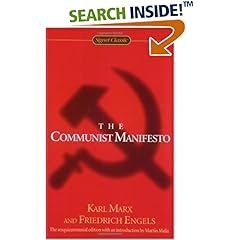My Interconnected World
My world view is one based on the interconnectedness of people and issues. The interconnectedness of issues was understood at a young age when my parents brought Jacob, a young African man from apartheid South Africa to live with us. I knew nothing of apartheid at that time, but I knew I loved Jacob -- he was a talented dancer who would spend the evenings after dinner teaching my sister and I the art of Soweto dance. One night, there was news coverage of an anti-apartheid riot in Soweto and I saw coffins the size of children. I understood immediately that Jacob would return to Soweto and that his fate could be like that of those dead children. My world immediately got smaller and I understood that the personal is political.
The interconnectedness of people I only absorbed later, and surprisingly it came from activism in my church. Surprising now only because Scott and I are not active in any church. We've intended to be once we settled down in a community; years have passed and we haven't felt settled, so we remain outside of the religious communities. But in high school, I served on the Board of Christian Education, I taught Sunday School, I was a member of the Youth Council for the state of Connecticut, and I was an active member of the youth group that pioneered service trips to such 'remote' locations as West Virginia and Kentucky.
It was through my work on the Youth Council that I also grabbed the opportunity to work in an orphanage in Puerto Rico when I was 16. During one Sunday service, about a month before I left for Puerto Rico, our Minister called me to the pulpit and announced to the congregation what I was doing. It was embarrassing, of course, though not because I was 16 and in front of the congregation; it was embarrassing because I didn't want the service work to be 'called out' as anything special. But the congregation was impressed and showed its support through an outpouring of checks to offset the travel costs, travel wisdom for a girl who had not been out of the continental US, and their overall love and support.
I'm not sure I can adequately express how I processed that love and support, other than to say that suddenly faith and religion felt very tangible to me. I could feel the spirit of the congregation around me, supporting me, and I believed in it as something that gave strength and faith. I understood the interconnectedness of people as profound.
I've continued to realize that interconnectedness in my professional life which gives new meaning and rewards everyday. I haven't dwelled on its religious context until recently. I am reading
Helen LaKelly Hunt's
Faith and Feminism: A Holy Alliance. Helen is trying to mend the rift between secular and non-secular feminism. The book illustrates how feminists throughout history have used their faith to realize their feminist agenda, rather than feeling ostracized from it. (It is a good read for those interested).
In the Letter to the Reader, Helen lays out her core message:
"We are meant to live in unity. We are meant to be interdependent. We are meant to be responsible for each other."
I think reading those words took my breath away. Helen had so acutely captured my own belief system.
A little known fact is that I have toyed this year with pursuing an advanced degree in theology. It felt intuitively right, but as a nonchurch goer, it felt hard to justify or explain. What was I searching for in theology? What did I feel I could offer in public service? With no answers, my interest wained on the back burner. Reading Helen's words, I was thrilled and my interest in faith and spiritualism was rekindled.
At a far deeper personal level, those words took on new meaning this week. Scott and I have been nurturing
another little secret. While embracing the excitement of new jobs and a move back to New England, we also discovered we were going to have a baby. It was overwhelming at first, but with a little time, we fully embraced the expansion of the Stefanski clan. At two months and with a little trepidation, we began telling family members and close friends.
But as quickly has it had happened, it was over. I had a miscarriage this week. Apparently, one in three pregnancies results in a miscarriage, and logically, we can understand that this is nature's way of saying it wasn't meant to be. We get that, but it didn't make it any less painful for us.
With the diagnosis, we've begun the process of telling our families and friends -- those who we had told we were pregnant and those we hadn't. Many of the women in my life have also experienced a miscarriage and are sharing their experiences. At a time, when I am unsure how it happens, feeling guilty that it was something I did, their stories solace me; others are just regaling us with love; and others are simply making me laugh (a good feeling when your days are filled with spontaneous crying). While their outpouring of support did not make the sadness go away, it is helping us process it.
I feel our interconnectedness and it gives me strength.
I share this because modern wisdom inhibits women from sharing news of their pregnancies until they are safely passed the first trimester. Keeping the workplace issues aside, I do know just how hard it is to make those 'follow-up' calls when things go wrong. It does, however, give people the the information they need to rally around you, to care for you, and to love you when, at least for a while, everything else seems a little bleak.












